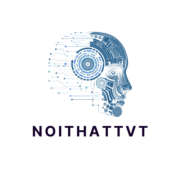Key Takeaways
- Pioneering Innovators: Key figures like Charles Babbage, Ada Lovelace, Alan Turing, and John von Neumann significantly contributed to the development of computing concepts and technology, laying the groundwork for modern computers.
- Evolution of Devices: The transformation from early mechanical devices, such as the abacus and Analytical Engine, to contemporary microprocessors illustrates the rapid advancement in computing power and accessibility.
- Foundation of Computer Science: Ada Lovelace is recognized as the first computer programmer for her innovative algorithms, while Alan Turing’s theoretical work established essential principles in computation and artificial intelligence.
- Hardware Advancements: The shift from vacuum tubes to transistors and integrated circuits has led to the creation of smaller, more efficient computers, with personal computers becoming widely accessible in the late 1970s.
- Software Development: Innovations in operating systems, programming languages, and software libraries have enhanced usability and functionality, driving the continuous evolution of computing technology.
- Global Impact: Inventors like Tim Berners-Lee revolutionized information sharing with the creation of the World Wide Web, fundamentally changing the way people access and communicate data worldwide.
The invention of computers revolutionized the way humanity interacts with technology, but the journey to create these complex machines is filled with intriguing stories and brilliant minds. From early mechanical devices to sophisticated digital systems, the evolution of computers has been shaped by numerous inventors and innovators. Each played a crucial role in paving the way for the digital age.
Understanding who made computers involves delving into a rich history of contributions from various individuals. Pioneers like Charles Babbage and Ada Lovelace laid the groundwork for modern computing, while others like Alan Turing and John von Neumann expanded the possibilities. This article explores these key figures and their groundbreaking work, shedding light on how their ideas and inventions continue to influence today’s technology.
Who Made Computers
The history of computers spans several centuries, marked by significant innovations and contributions from key figures. Understanding these developments reveals how foundational ideas propelled technology into its current state.
Early Innovations
Early computational devices included the abacus and the mechanical calculator, which date back to ancient civilizations. Charles Babbage, known as the “”father of the computer,”” designed the Analytical Engine in the 1830s. Ada Lovelace, recognized as the first computer programmer, wrote algorithms for this engine. These early concepts laid the groundwork for subsequent advancements in computing technology.
Key Figures in Development
Numerous key figures influenced the evolution of computers.
- Alan Turing: Turing proposed the Turing Machine in 1936, a theoretical device that defined computation. His work in code-breaking during World War II greatly advanced computing technology.
- John von Neumann: Von Neumann’s architecture, introduced in the 1940s, established the foundational structure for modern computers, particularly the stored-program concept.
- Grace Hopper: Hopper developed the first compiler in the 1950s, which translated human-readable code into machine language, enabling easier programming.
- Tim Berners-Lee: Berners-Lee invented the World Wide Web in 1989, revolutionizing how people access and share information globally.
Pioneers of Computer Science

Key figures in the history of computer science laid the groundwork for modern computing through their innovative ideas and inventions. Their contributions continue to influence technology today.
Charles Babbage
Charles Babbage, often regarded as the “”father of the computer,”” designed the Analytical Engine in the 1830s. This mechanical machine featured concepts like arithmetic logic units and integrated memory. Babbage’s vision included a device capable of performing any calculation and making decisions based on input. Though the Analytical Engine was never completed during his lifetime, its design laid the foundation for future computer development.
Ada Lovelace
Ada Lovelace is celebrated as the first computer programmer for her work on Babbage’s Analytical Engine. She recognized the potential of the machine beyond mere calculations, writing algorithms meant to be processed by it. Lovelace’s notes included a method for calculating Bernoulli numbers, illustrating her forward-thinking approach to programming. Her insights established the groundwork for the programming discipline, making her a pivotal figure in computer science history.
The Evolution of Modern Computers
Modern computers result from numerous innovations in hardware and software, driven by the work of several key figures. This evolution showcases how technological advancements have transformed computing into an essential tool in various sectors.
Hardware Advancements
Hardware advancements include significant milestones that shaped computer development.
- Transistors replaced vacuum tubes in the 1950s, reducing size and increasing reliability.
- Integrated Circuits emerged in the 1960s, allowing multiple components to be placed on a single chip, enhancing performance and efficiency.
- Microprocessors debuted in the early 1970s, consolidating the functions of a central processing unit (CPU) onto a single chip.
- Personal Computers began appearing in the late 1970s, making computing accessible to individuals and small businesses, exemplified by devices like the Altair 8800 and Apple II.
- Graphic Processing Units (GPUs) revolutionized visual computing in the 1990s, supporting the rise of graphics-intensive applications such as gaming and multimedia editing.
These improvements laid the groundwork for the robust and versatile machines utilized today.
Software Development
Software development parallels hardware advancements and drives usability and functionality.
- Operating Systems (OS), like Unix and Windows, provide user-friendly interfaces and manage hardware resources, enabling efficient operation of applications.
- Programming Languages, such as C, Java, and Python, emerged over the years, streamlining the process of writing software and expanding accessibility for developers.
- Software Libraries and Frameworks accelerated development by providing pre-written code for common tasks, increasing productivity and innovation in software engineering.
- Internet Protocols and technologies facilitated global communication and information sharing, exemplified by the development of the World Wide Web.
These software innovations continue to expand computing capabilities and enhance user experiences across various applications.
Significant Contributions Over the Years

The history of computing showcases numerous influential figures whose contributions shaped the development of computers. Among these innovators, Alan Turing and John von Neumann stand out for their pivotal roles in advancing computer science.
Alan Turing
Alan Turing made groundbreaking contributions with the concept of the Turing Machine in 1936. This theoretical construct established a foundation for modern computation by defining algorithms and computation limits. During World War II, Turing played a critical role at Bletchley Park, where he developed the Bombe machine, enabling the decryption of the German Enigma code. His work not only advanced cryptography but also laid the groundwork for artificial intelligence, sparking ongoing discussions about machines simulating human cognitive processes.
John von Neumann
John von Neumann significantly influenced computer architecture with his introduction of the von Neumann architecture in the 1940s. This design established a framework where the computer’s memory holds both data and instructions, allowing for program storage alongside processing capabilities. This model shaped the structure of virtually all modern computers. Additionally, von Neumann’s contributions to game theory and numerical analysis directly impacted various computational methodologies, promoting efficient problem-solving approaches in computer programming and design.
History of Computers
The journey of computing is a testament to human ingenuity and collaboration. From Babbage’s early concepts to Lovelace’s pioneering algorithms the groundwork laid by these visionaries has shaped the digital landscape. Turing and von Neumann further refined the principles of computation and architecture establishing frameworks that remain relevant today.
As technology continues to evolve the contributions of these innovators serve as a reminder of the importance of creativity and problem-solving in driving progress. Their legacies inspire future generations to push the boundaries of what computers can achieve enhancing lives and transforming industries. The story of who made computers is not just about individual inventors but a collective effort that continues to unfold.

